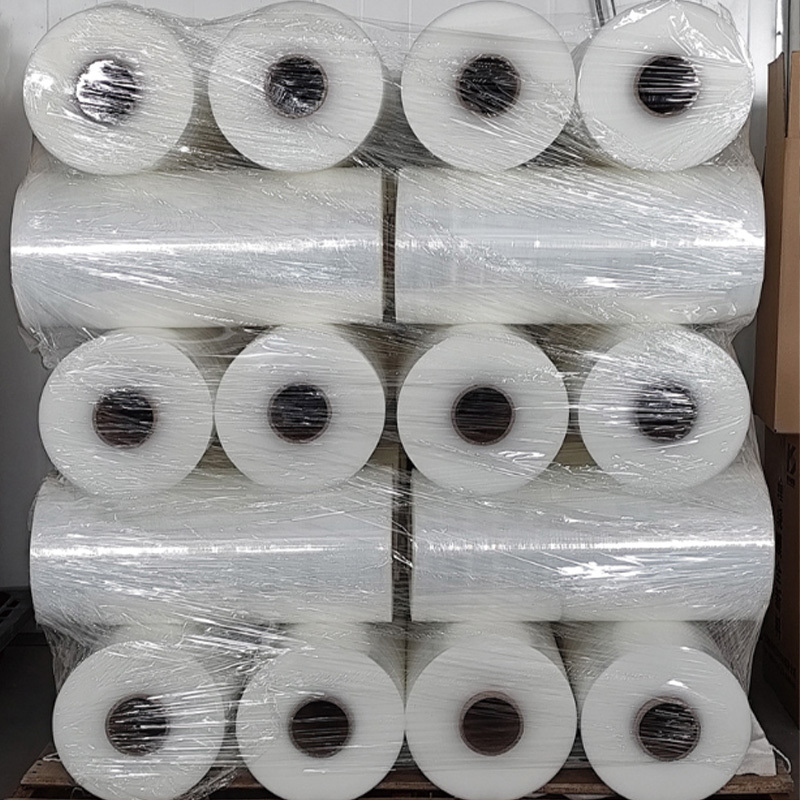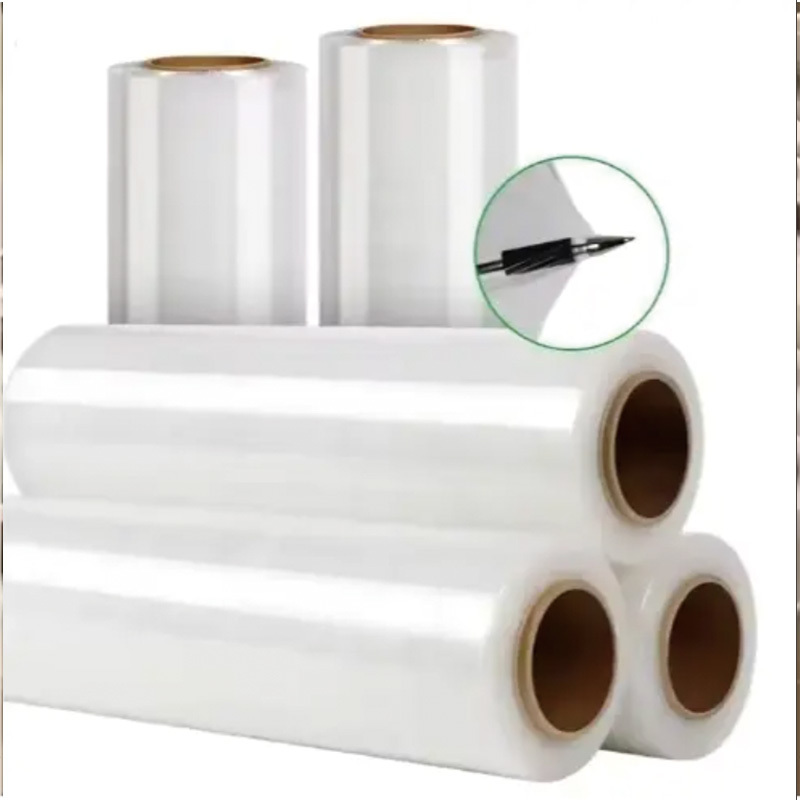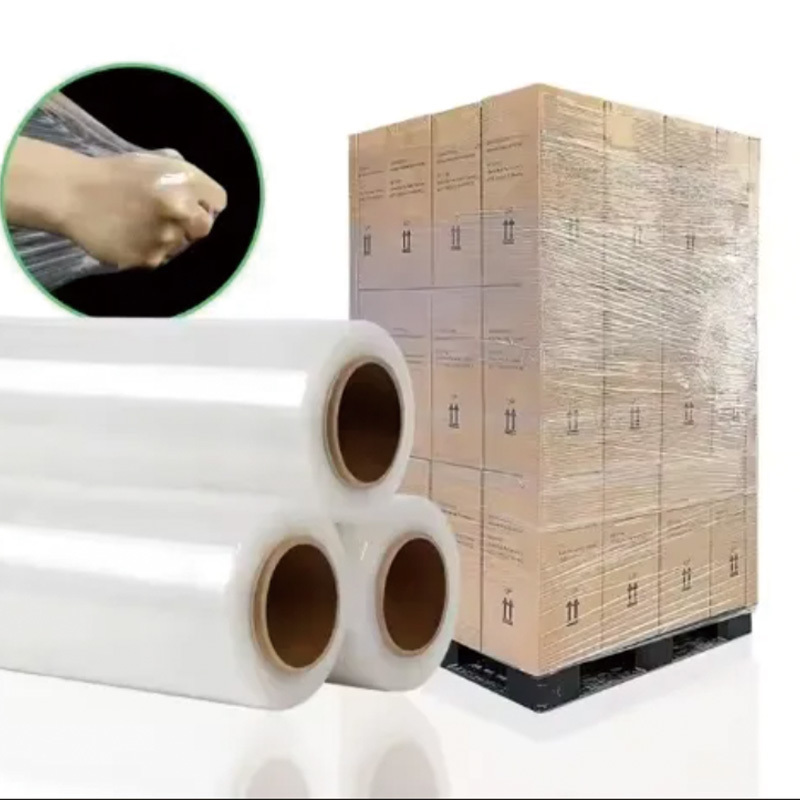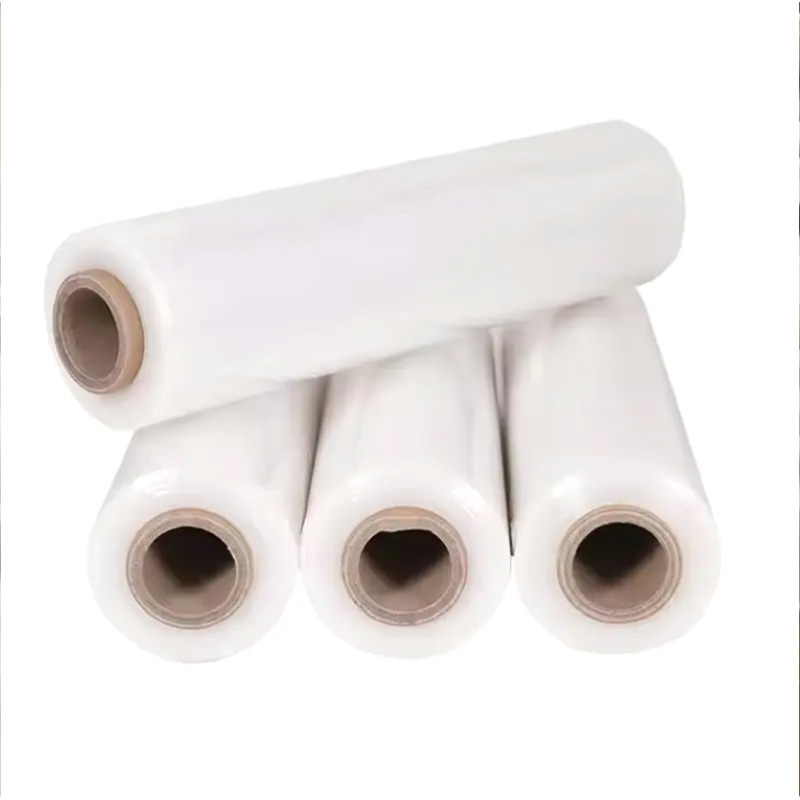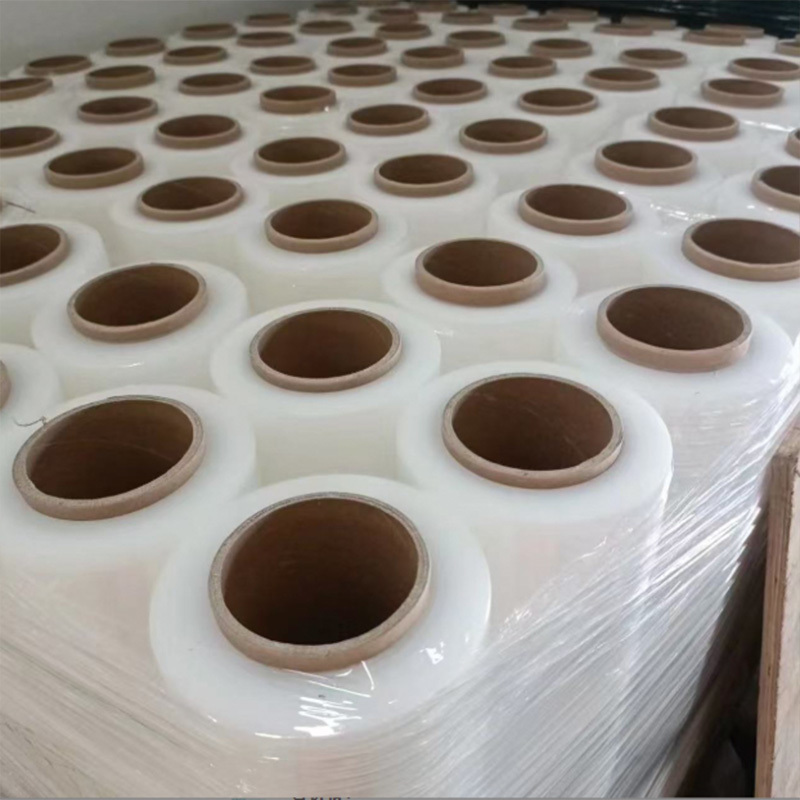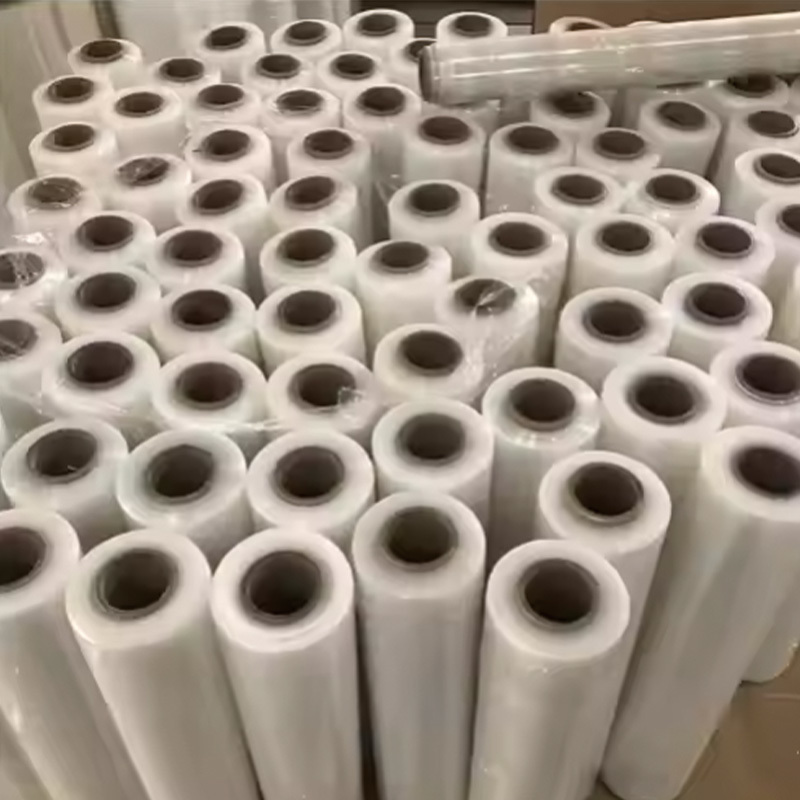Products
Contact Us
Tel:+86-13345113241(Flora Li)
WeChat:+86-133-4511-3241
WhatsApp:+86-133-4511-3241
Email:sales@clgreenhousefilm.com
Email:liflora426@gmail.com
Factory Address: Zhuliang Plastics Industrial Park, Gaoliu Town, Qingzhou City, Shandong Province
Jinan Foreign Trade Sales Address: Unit 2, Building 7, Shanggan Xintiandi, Industrial South Road, Jinan City
Details Description
Stretch Film for Packing Plywood Cases and Cargoes:
1. Material Composition and Types
Stretch films used in industrial packaging (especially for plywood cases and heavy cargoes) are primarily made from polyethylene (PE) polymers, with key types including:
|
Type |
Material Characteristics |
Application Scenarios |
|
LLDPE (Linear Low-Density PE) |
High tensile strength, excellent puncture resistance, and superior stretchability. |
Heavy-duty packaging for plywood cases, metal parts, and bulky cargo. |
|
LDPE (Low-Density PE) |
Softer texture with good clarity and self-adhesion. |
General-purpose wrapping for lighter cargoes or manual application. |
|
MDPE (Medium-Density PE) |
Balances stiffness and flexibility, suitable for semi-heavy loads. |
Intermediate-weight goods like machinery components. |
|
Composite Films |
Multi-layer structures (e.g., LLDPE + LDPE) for enhanced performance (e.g., UV resistance). |
Outdoor storage or long-distance transportation requiring weather protection. |
2. Key Features for Plywood Case Packaging
High Tensile Strength: Ensures tight wrapping to prevent cargo shifting during transit (e.g., tensile strength ≥ 20 MPa for LLDPE films).
Puncture Resistance: Resists tears from sharp edges of plywood or protruding cargo parts (e.g., Elmendorf tear strength ≥ 200 g).
Self-Adhesion: Minimizes the need for additional tapes by adhering to itself, securing loads effectively.
Moisture & Dust Protection: Acts as a barrier against humidity and contaminants, preserving the surface of plywood and goods.
UV Stability (Optional): Specialized films with UV inhibitors prevent degradation from sunlight during outdoor storage.
3. Application Scenarios and Benefits
|
Cargo Type |
Packaging Challenges |
How Stretch Film Solves It |
|
Plywood Cases |
Heavy weight, potential edge damage, moisture absorption. |
Tight wrapping distributes weight evenly; puncture-resistant films protect edges; moisture barrier preserves wood quality. |
|
Metal Machinery |
Sharp corners, rust risk from condensation. |
Thick-gauge films (e.g., 20–30 μm) cushion corners; airtight wrapping reduces oxidation. |
|
Palletized Goods |
Load stability during forklift handling or shipping. |
High stretchability (up to 300% elongation) allows secure bundling, minimizing pallet collapse. |
|
Fragile Equipment |
Vibration and impact during transport. |
Elastic film tension absorbs shocks, while multiple layers provide cushioning. |
4. Technical Parameters and Selection Tips
Thickness:
Manual stretch film: 12–25 μm (suitable for small batches, easy to handle).
Machine-grade film: 20–50 μm (higher strength for automated pallet wrapping).
Stretch Ratio:
Standard films: 150–200% stretch; high-performance films: 250–300% stretch (reduces material usage by up to 50%).
Gauge Uniformity: Ensures consistent tension; look for films with ≤ 5% thickness variation.
Roll Dimensions: Common widths: 300–500 mm; roll lengths: 500–3000 m (adjust based on pallet size and wrapping patterns).
5. Environmental Considerations
Recyclability: Most PE stretch films are recyclable; look for films with recycling codes (e.g., Resin Code #4).
Biodegradable Options: Starch-based or oxo-biodegradable films are available for eco-conscious applications (though less common in heavy-duty use).
Thin-Gauge Innovation: Thinner films with equivalent strength reduce plastic waste (e.g., 15 μm films replacing 25 μm films).
6. SEO-Friendly Keywords for Industry Search
Stretch film for plywood cases
Heavy-duty cargo stretch film
Puncture-resistant packaging film
Industrial pallet wrapping film
LLDPE stretch film for machinery
UV-stabilized stretch film for outdoor storage
Get a free quote
Please fill in your contact information and your needs, and we will arrange a professional to contact you!
Agricultural Technology
Characteristics of white mulch film
Introduction to punched mulch film
Introduction to black mulch film
FAQ
Q
Are you a manufacturer?
A
Yes, we are a agricultural film manufacturer in China, covering an area of 7,000 square meters with a daily output of 50 tons.
Q
What information should I provide to get an accurate quotation?
A
Option 1: Dimensions, thickness, width, and length and specification;
Option 2: Functional requirements, such as anti-fog, anti-drip, light conversion, diffused light, etc.;
Option 3: What plants are the greenhouses used for?
Option 4: In which country or region will it be used? Please provide a detailed description of the climate conditions at the site of use, including temperature, precipitation, etc?
Option 5: The service life (lifespan) you require for the product.
Q
Can your products be used in areas with strong UV radiation?
A
Yes, our products are very popular in the Xinjiang market of China, where there are 13 hours of sunlight during the day.
Q
What is your production capacity?
A
We produce 50 tons per day, approximately 1,100 to 1,500 tons per month.
Q
Are you willing to provide samples?
A
We provide samples for free, but the customer needs to pay the express delivery fee.
Q
Do you inspect the finished products?
A
Yes, the company has professional testing instruments and a testing department. Quality inspection is carried out for each production step and the finished products before delivery.
Q
Can your products be used in areas with frequent acid rain?
A
Yes, our products can also be well applied in acid rain areas, such as Yunnan, Sichuan, Guizhou, etc.
Q
What is your delivery time?
A
Our delivery time is about 10 to 20 days.
Q
What is your minimum order quantity (MOQ)?
A
Our minimum order quantity is 1 ton.







